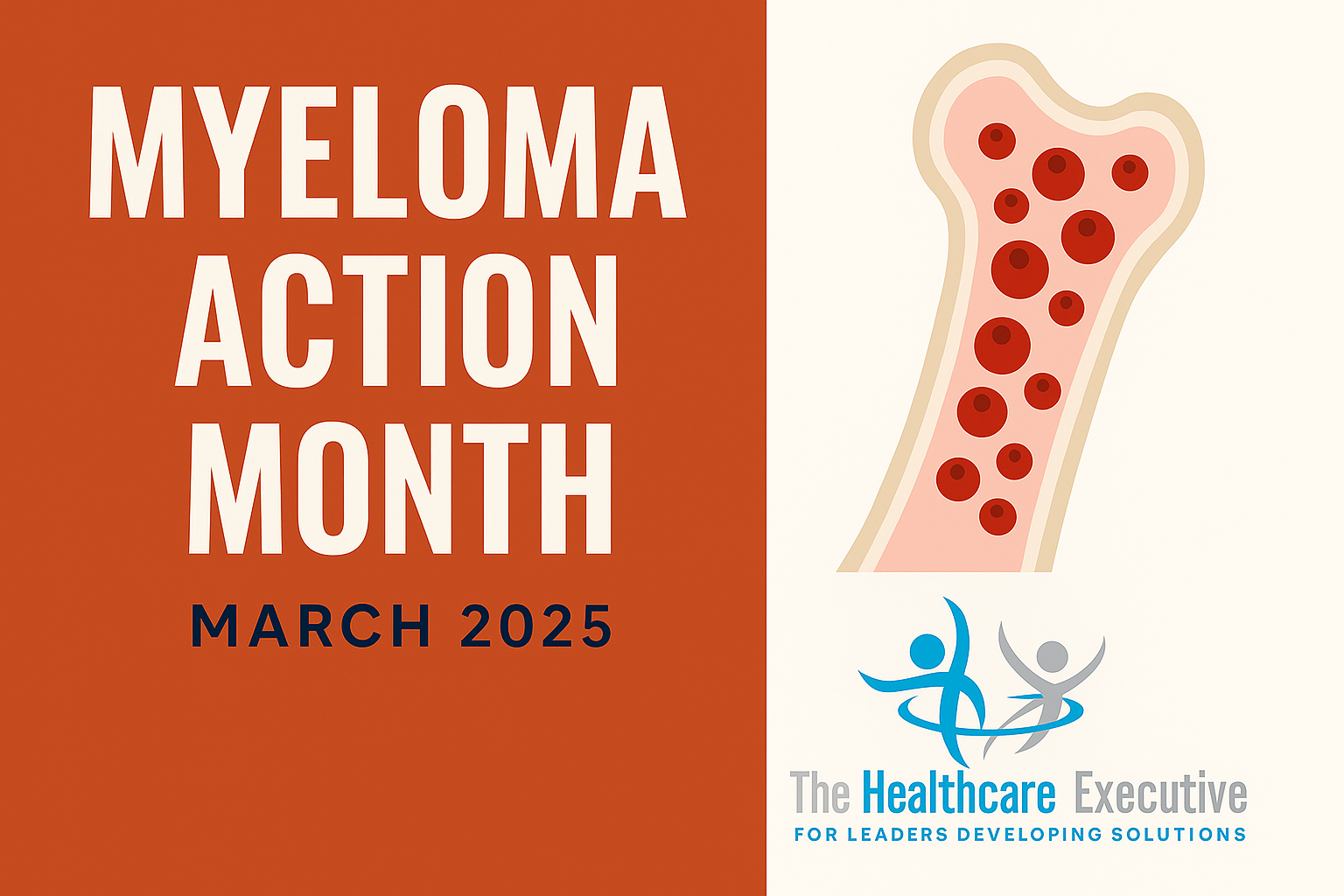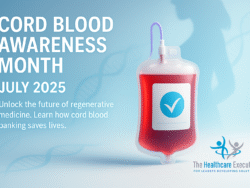Myeloma Action Month 2025: What Healthcare Leaders Must Prioritize

- Posted by Greg Wahlstrom, MBA, HCM
- Posted in Health Observance Calendar
Why Strategic Oncology Governance and Equity Measures Matter More Than Ever
Published: March 3, 2025
March marks Myeloma Action Month, a critical health observance that underscores the rising importance of executive engagement in oncology strategy. Multiple myeloma, a rare and incurable blood cancer, affects over 35,000 people annually in the U.S.—with a disproportionately higher incidence and mortality rate among Black Americans. At Memorial Sloan Kettering Cancer Center, integrated clinical pathways, research partnerships, and genomic tracking are helping drive more personalized care. However, the broader hospital landscape still lags behind in early detection and systemic coordination. Healthcare leaders must view Myeloma Action Month not just as an awareness campaign but as an accountability checkpoint for hospital-based oncology governance.
Early detection of multiple myeloma remains a significant challenge. Symptoms such as fatigue, bone pain, and recurrent infections are often misdiagnosed, delaying life-extending treatment. According to the American Cancer Society, nearly a quarter of patients are diagnosed at advanced stages. Hospitals like Cedars-Sinai have integrated routine serum protein testing into broader primary care workflows to accelerate diagnosis. C-suite executives should align operational goals with this approach, ensuring that both EHR prompts and clinical decision support tools facilitate rapid evaluation of hematologic abnormalities. Diagnostic precision is no longer just a clinical function—it’s a leadership outcome.
Access to comprehensive treatment and emerging therapies remains fragmented. Multiple myeloma care increasingly involves advanced imaging, chemotherapy, immunomodulators, stem cell transplants, and CAR T-cell therapies—all of which require significant infrastructure. Institutions like MD Anderson Cancer Center are leading in offering streamlined access to clinical trials and community oncologist integration. For other hospitals, executives must close gaps in access by expanding oncology nurse navigators, telehealth for rural areas, and transparent cost-of-care tools. Without strong administrative architecture, even the best therapies remain inaccessible to many. This March, leaders must assess how delivery system design shapes cancer care outcomes.
Equity remains an unresolved crisis in myeloma care. Black patients are twice as likely to develop the disease yet face persistent barriers in access to high-performing cancer centers and advanced treatments. The International Myeloma Foundation reports that racial disparities remain even after controlling for socioeconomic status. Executives should address this with DEI-informed oncology roadmaps, funding for minority clinical trial participation, and localized outreach through community clinics. At Northwell Health, partnerships with community faith organizations and barbershop health programs are helping identify patients earlier. Equity cannot be a side initiative—it must be a cornerstone of cancer strategy.
Finally, workforce readiness in oncology must match the scale of rising myeloma cases. Nurse burnout, data overload, and clinical research gaps continue to challenge delivery models. At UC Health, clinical teams now rotate through precision oncology training modules that include myeloma-specific protocols. Hospital executives should ensure their staff training pipelines, continuing education investments, and academic partnerships reflect the evolving nature of hematologic oncology. By embedding action into workforce development, hospitals will be positioned to lead through both innovation and sustainability.
Discover More on Equity-Focused Leadership
If your organization is working to reduce disparities, scale oncology solutions, and build a sustainable workforce pipeline, explore our leadership insights on rebuilding trust across U.S. health systems.
Internal Links
- The Healthcare Workforce Crisis: Executive Solutions That Actually Work
- Rebuilding Trust in U.S. Healthcare: A Leadership Blueprint



